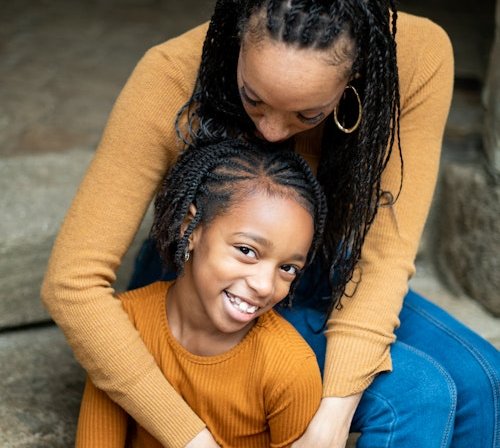“I can speak to other Black women in an open and honest way about the unique challenges we face.” Kalisa, former Working Chance client
This Black History Month’s theme is saluting our sisters. So we’re taking a moment to celebrate the unwavering spirit of Black women, their contributions to society, and their continued pursuit of excellence.
But before we celebrate, we must first acknowledge that while Black women demonstrate real determination, they shouldn’t have to be ‘strong’ or, work ‘twice as hard’ to achieve their potential. We need to take an honest look at why our systems are failing to create a fairer society for everyone.
Black women face disproportionate treatment in both the criminal justice system and the workplace, juggling multiple responsibilities and having a conviction while seeking employment, leads to challenging intersecting circumstances known as the 'Worst-Case Scenario'.
There’s still a lot of work to do to tackle the double discrimination that Black women with convictions face when looking for work. But for Black History Month, let’s delve into the remarkable and often overlooked role that communities of Black women have played in inspiring and creating change in their lives, despite the odds stacked against them.
We caught up with a former Working Chance client Kalisa, a Black woman with a conviction who now works in the criminal justice sector. Read on to hear how community, sisterhood and having someone to relate to as a Black woman helped her to move on after receiving her conviction.
Black women, the lived experience
Kalisa, former Working Chance client“Black women are labelled by society as “angry”, and this was reflected in my experience. The way I was described made me feel like I was being portrayed as someone unrecognisable.”
Kalisa isn’t alone in having a negative experience of the justice system. Black women are more likely to be arrested, and receive harsher punishments than white women, leading to criminal records that last longer. This makes the process of trying to find work afterward very challenging, as women will need to disclose their convictions to employers for longer. We cover this in more detail in our research ‘Worst-Case Scenario’.
“I spoke to a couple of friends in depth and a church counsellor, who are all Black women. They provided me emotional support, guidance, and a non-judgmental space to share my experience.”
Kalisa speaks with admiration about the women in her life who supported her after she received her conviction. She also highlights that it was vital for her to be around people who could offer her “understanding and empathy.”
“As a Black woman, I felt like I never stood a chance. I felt alone throughout the whole process.”
Our commitment to supporting women like Kalisa is mirrored by the diverse women who come to Working Chance. As of August 2023, Black women make up just under a quarter (19%) of the women we support – compared to just 4% of the UK public. This underlines the importance of a tailored and trauma-informed approach, sensitive to experiences that Black women have.
Sisterhood & Solidarity
Kalisa also notes that there were women of all backgrounds in her life who were allies in her time of need, highlighting how the power of sisterhood can transcend race when we all work together.
“The support I received from Working Chance after the conviction helped me to realign my purpose, restore my identity and my mental health.”
Kalisa, former Working Chance client“My community helped to validate my experiences and affirmed that I’m not alone. That empowered me and helped me to heal so now, I’m able to do the same for another sister.”
“My community helped to validate my experiences and affirmed that I’m not alone. That empowered me and helped me to heal so now, I’m able to do the same for another sister.”
A combination of practical support from Working Chance, the support of her community and Black women to draw inspiration from, has helped Kalisa to turn her mindset around and be more optimistic about her future.
Kalisa now works as a civil servant and is a member of Working Chance’s lived experience advisory panel, shaping our service for women with convictions. Sharing her lived experience and working in the justice system has empowered Kalisa to help other women.
“I’ve now become the support for others that I was hoping for when I received my conviction.”
“One of the things that has helped me is to hear stories from other women who've also been through the justice system. I reflect on these stories, and I know that each day takes me one step closer to where I want to be. Even with all the barriers I’m likely to face, my story will end in success.”
Inspired by stories like Kalisa’s, we are motivated to create a future where barriers dissolve, and sisterhood prevails. Join us in saluting the unwavering spirit of Black women this Black History Month. Together, we can empower, uplift, and inspire change.

